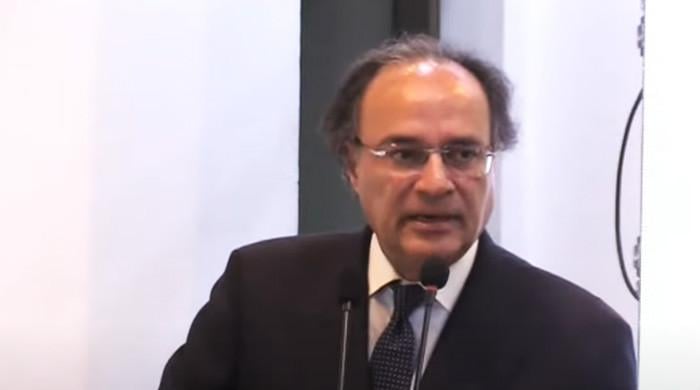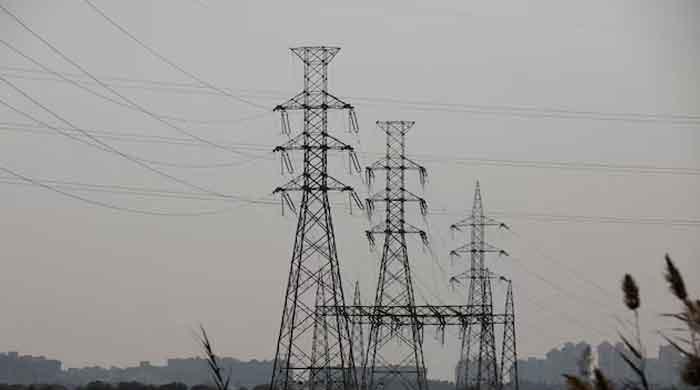PSX surges as fresh liquidity sparks strong rebound
Market has received fresh liquidity from local buyers, including large funds and major buyers, says analyst
February 24, 2025

- KSE-100 Index surges 1,529 points, closing at 114,330.10.
- Benchmark index hits intraday high of 114,573.67 amid strong gains.
- Market rebounds sharply from intraday low of 111,857.33.
The capital market experienced a strong rally on Monday as fresh liquidity from local investors fuelled a sharp reversal in sentiment.
After a subdued start to the session, the market witnessed a significant shift in momentum, with large funds and institutional investors injecting new capital.
The Pakistan Stock Exchange's (PSX) benchmark KSE-100 Index jumped 1,529.17 points, or 1.36%, to settle at 114,330.10, fuelled by renewed liquidity injections and improved investor confidence.
The benchmark index touched an intraday high of 114,573.67, while the session’s low stood at 111,857.33, marking a dramatic turnaround from the cautious trading seen earlier in the session.
Sana Tawfik, Head of Research at Arif Habib Limited, explained the shift in market dynamics, saying: "The market has received fresh liquidity from local buyers, including some large funds and major buyers who have made fresh injections of liquidity. That is why the market, which was negative, has now turned positive in the second half with increased buying activity."
Investors capitalised on attractive stock valuations following a period of profit-taking and cautious sentiment.
Muhammad Saad Ali, Director of Research at Intermarket Securities Ltd, highlighted the factors influencing the market resulting in the bearish sentiment, saying: “Broadly, profit-taking among institutional investors due to lack of new positive triggers and the current result season so far failing to lift investor sentiment.”
“Also, worries around falling cement prices. Lastly, market waiting for the IMF review to pass before building fresh positions,” he added.
Finance Minister Muhammad Aurangzeb has reaffirmed the government’s commitment to eliminating tax evasion and tackling corruption, as Pakistan engages with the IMF for crucial economic negotiations.
Speaking to the media, the finance minister confirmed that the IMF’s technical mission has arrived in Pakistan for a three-day visit to discuss climate financing and economic reforms.
He further said that another IMF delegation is scheduled to arrive next month to discuss matters pertaining to the country's $7 billion Extended Fund Facility (EFF).
Sources revealed that a four-member IMF delegation is currently in Pakistan and has begun introductory meetings with government officials. The technical-level negotiations will focus on green budgeting, climate tracking, and reporting, as well as climate budgeting projects.
The climate change-related discussions come against the backdrop of Islamabad's request for $1 to $1.5 billion in funding to augment the existing loan of $7 billion under EFF up to $8 or $8.5 billion.
The IMF review is a crucial step for securing continued financial support and maintaining economic stability.
Pakistan’s foreign exchange reserves increased by $35 million during the week ending February 14, bringing total reserves held by the State Bank of Pakistan (SBP) to $11.20 billion. However, the country’s external financing needs continue to exert pressure on reserves, with analysts closely monitoring developments in remittances and export performance.
The total liquid foreign reserves stood at $15.95 billion, with commercial banks holding $4.75 billion. Despite the latest increase, external debt repayments remain a significant challenge, as evidenced by a $252 million decline in reserves recorded in the previous week, bringing SBP’s total reserves to $11.17 billion as of February 7.
Pakistan’s external account has shown signs of improvement, largely driven by a surge in remittances and better export performance. However, ongoing debt obligations continue to weigh on foreign exchange reserves, making economic negotiations with global lenders all the more critical.
The KSE-100 Index closed at 112,801 points on Friday, gaining 716 points (0.64%) on a weekly basis, extending its positive performance for the second consecutive week.
Investors took positions in select sectors, as corporate earnings reports and external economic developments shaped trading activity.











